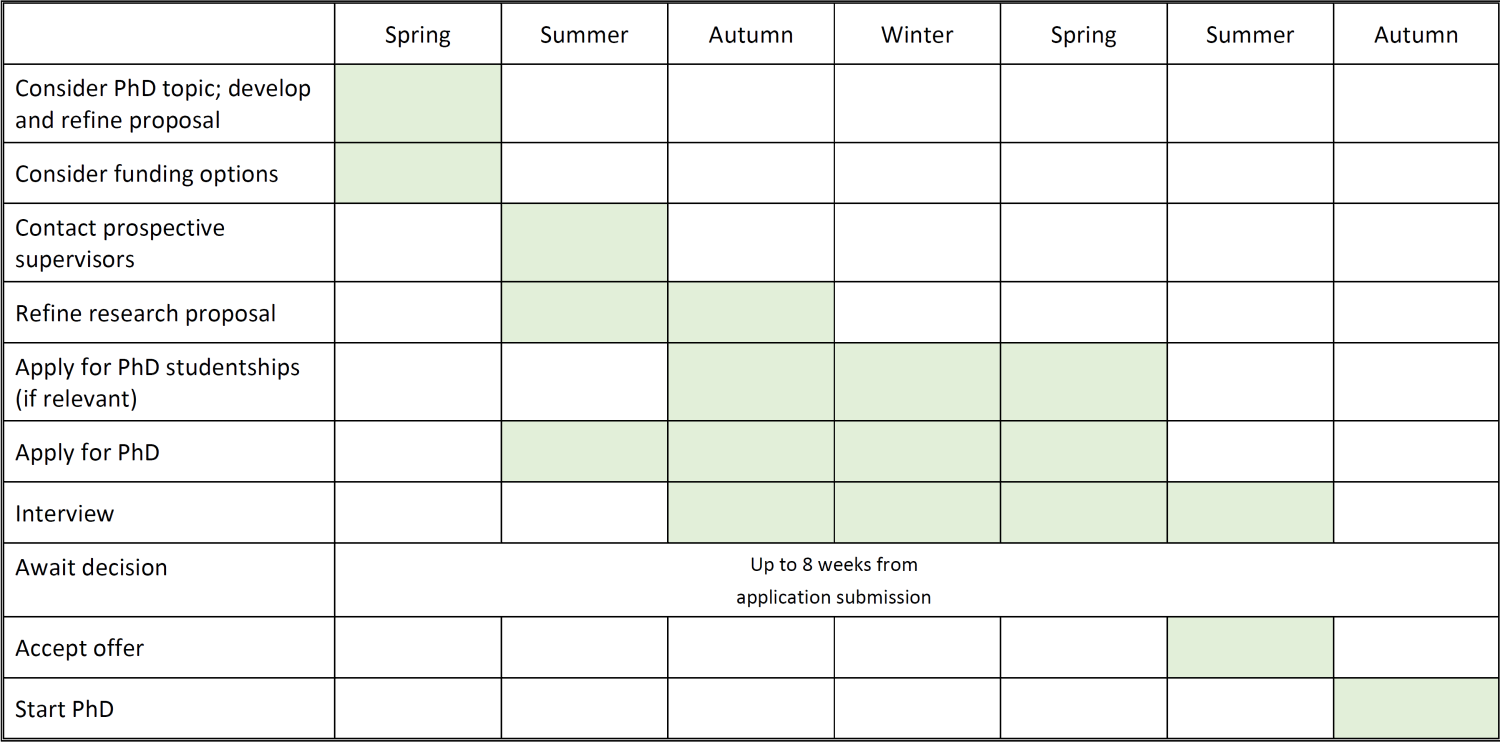- ...
Masters Compare - Find your perfect masters course.

Are you are thinking about when is the best time to begin your PhD search? If so it’s wise to understand how the timeline to starting your PhD works because it is not the same as starting a degree. We'll explore how to start a PhD programme.
The UCAS system at undergraduate level provides a standardised application process across all UK universities. Achieve the grades required, follow the relevant steps and deadlines. And next thing you know, you’re on your way to starting your degree. It’s safe to say, things can feel a little hazier at postgraduate level. In the majority of cases you’ll be applying direct to your chosen university, not through UCAS.
This guide provides an overview of what to do when based on the commonalities between most universities. But given things are less standardised a postgraduate level, always double check with your preferred universities.
In order to understand how starting the PhD timeline differs from other levels of study, it’s probably useful to highlight the key difference: a UK PhD is not a taught course. It’s down to you and your own research, so think of the application process as less like applying to study and more like applying for a job - but it’s you who defines the job title and you who needs to find not only the right boss (supervisor) - but funding as well.
This is particularly true in the Arts and Humanities, although in STEMM subjects, you may be literally applying for a job in the form of a PhD studentship with a pre-defined title, working as part of a research team.
PhD studentships form one of the two main sources of funding. Research Councils – these make up UKRI, award studentships to universities. Government-funded Doctoral loans are the other main route (UK students only). Studentships are generally advertised between September and March each year for start the following September. Check out our post on UKRI funding for more information.
Response times to PhD applications can be notoriously slow. This is because Admissions staff alone are not in a position to assess whether you are suitable; academic expertise combined with an understanding of whether a suitable supervisor(s) is available is required. If the relevant academic staff are on sabbatical, busy teaching or working fewer hours over the summer; don’t expect a quick response.
This is where your pre-application work comes in: if you’ve already built a relationship with your prospective supervisor(s) who has helped you refine your research proposal, the application process is likely to be far quicker. Check out our How to Find your Perfect Supervisor post for more information. Starting with finding a PhD supervisor kickstarts your timeline on the correct step.
The time taken to source funding, choose a university and supervisor and refine your research proposal is going to vary greatly between individuals. The timeline below gives some sense of the steps and possible timescales involved to start a PhD in the Autumn. Remember to keep your eye out for possible PhD studentships all year round, as it’s possible to start many PhDs at any point:

Most universities use an online application portal where you can save your work and complete your application in stages. These are the most common requirements:
If your chosen university is interested in you, your final stage of the application process is likely to be an interview. Visit our post on How to Nail your PhD interview in order to ensure you don’t fall at the final hurdle.
Applying for a PhD can take time. But it’s worth the effort to ensure you find the right university and right lead supervisor. PhD studentships can be advertised pretty much as soon as you start your masters, which can seem far too soon for many. Read how Edward, a Medieval French Postdoc did just this.
Search through the latest PhD study opportunities on Postgraduate Studentships , and join our mailing list for up-to-date advice and opportunities.